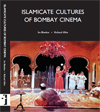
| Invitation |
| Screening Schedule |
| Abu dhabi Festival |
| Reviews |
| Book Sale & Signing |
 |
| news-views.in Classic Indian films on Muslim themes coming to New York May 4th, 2010 by admin |
New York, May 4 – The prestigious Film Society of Lincoln Centre in New York is presenting a new film series focusing on Indian cinema May 19-27 highlighting classic films showcasing Muslim themes, performance idioms and lyric traditions. Called ‘Social Dramas and Shimmering Spectacles: Muslim Cultures of Bombay Cinema’, the first film series of its kind in New York will feature ‘Jodhaa Akbar’ on the opening night along with more than a dozen other films like ‘Mughal-e-Azam’, ‘Pakeezah’, and ‘Umrao Jaan’. Presented in collaboration with Indo-American Arts Council and the Indian consulate, the series curated by Richard Allen and Ira Bhaskar, displays the extraordinary richness of Bombay cinema. Spanning films from the 1930s to the present, the series features historical spectacles that celebrate the justice and tolerance of the Mughal imperium as an antidote to colonial rule. The new series follows one on Satyajit Ray last spring. Presented are films of aching beauty that focus upon the figure of the courtesan, at once alluring, romantic and tragic and stories of Muslim social life that dramatise the changing social roles of a society in transition. Film-makers tentatively scheduled to appear include Ashutosh Gowariker, director of the hugely successful historical epic, ‘Jodhaa Akbar’ starring Aishwarya Rai and Hrithik Roshan, and Khalid Mohamed, director of ‘Fiza’ and writer of Mammo. ‘These rich and vibrant films from Bombay are a captivating addition to the many world cinemas we present at the Film Society,’ says Mara Manus, executive director of the film society. ‘Post Slumdog, there is a new awareness that a great cinema exists in India beyond the work of a few art-house auteurs,’ says Allen, Professor and Chair of Cinema Studies, Tisch School of the Arts, New York University. ‘This beautifully curated series offers a fresh and fascinating perspective into that treasure chest that is the Bombay cinema,’ says Richard Pena, programme director. ‘Exploring the many ways that cinema has depicted India’s Muslim minority, Richard Allen and Ira Bhaskar add to and deepen a discussion that has relevance not only for India but for America as well.’ The films ‘celebrate the richness of aesthetic and narrational forms that while being distinctively Indian are also universal,’ says Bhaskar, Associate Professor of Cinema Studies at the Jawaharlal Nehru University, New Delhi. |
| Source: http://news-views.in/classic-indian-films-on-muslim-themes-coming-to-new-york/ |